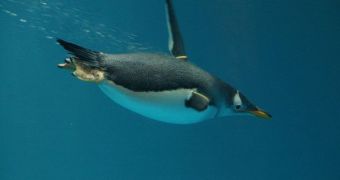The globally declining state of penguin populations worldwide has motivated many biologists and other scientists to investigate possible solutions to this crisis that could inform policymakers. French experts at the Centre d'ecologie fonctionnelle et evolutive, working together with colleagues from the University of the Cape in South Africa, have found that closing fish zones in the ocean may have a beneficial effect on Cape penguins, which have been dwindling in numbers recently. These Marine Protected Areas (MPA) could also work for penguin populations in other regions of the world as well, according to AlphaGalileo.
Working together with government authorities and the South African fishing industries, the researchers were able to set up a unique experiment that gaged the impact of halting these activities on the penguin population. This was conducted at two colonies, and the full results of the investigation appear in the February 10 online issue of the respected scientific journal Biology Letters. Between 2001 and 2009, in just eight years, the Cape penguin Spheniscus demersus – which is also the only African penguin – has experienced a 60-percent decline in population, due to the lack of food.
The primary cause for their demise is the relocation or displacement of banks of sardines and anchovies, which are the main food source for these flightless birds. A further threat is posed by human activities, which compete with the birds in exploiting the low amounts of fish that have endured along the South African Cape. The country's Marine and Coastal Management cooperated with scientists, and closed a 20-kilometer radius of the ocean in January 2009, so that no fishing vessels could enter. Another region, near a second penguin colony, was designated as a control zone.
Scientists then attached small, water-dynamic GPS devices to 91 birds, so as to analyze their feeding patterns, and the routes they took. In 2008, before the area was closed, the animals covered as much as 150 kilometers in two days, while searching for food, due to the lack of fish in their region. Some three months after the area was closed, in 2009, the vast majority of penguins traveled less than 20 kilometers in any direction, and always remained within the MPA. In the control area, the penguins traveled just as much during both 2008 and 2009.

 14 DAY TRIAL //
14 DAY TRIAL //